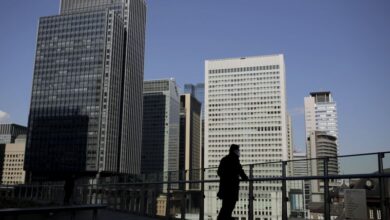Jokowi rallies International South to comply with commodities refining path

[ad_1]
Indonesia is rallying growing international locations to comply with its footsteps in deriving extra wealth from their pure sources by climbing up the provision chain.
Which will begin with a July assembly between Indonesian President Joko Widodo, Brazilian chief Luiz Inacio Lula da Silva and Democratic Republic of Congo President Felix Tshisekedi to signal a deal to guard forests and make use of the ensuing carbon credit score. That would then be expanded to different African and Latin American international locations that maintain as much as 70 % of the world’s tropical forests.
“I see how in developed international locations there are those that consider that if that is the place we’re, that is the place we should always keep—I say, no, it received’t be that manner,” Indonesia’s Coordinating Maritime and Funding Minister Luhut Panjaitan stated in an interview. “We would like growing international locations to not solely export uncooked supplies. There must be added worth on your nation and on your folks.”
Nickel is displaying Indonesia a solution to catapult itself into the ranks of higher-income economies, with the steel’s exports worth surging tenfold in 5 years after the federal government compelled firms to refine it onshore. Now Southeast Asia’s largest financial system plans to make use of that blueprint by processing all the things from copper to fish, whereas urging different international locations to comply with.
Neighboring Philippines, the second-largest nickel provider after Indonesia, is taking notice by contemplating imposing charges on exports, whereas Zimbabwe launched a ban on lithium exports to encourage native processing. Panjaitan took delegates from DR Congo, the highest cobalt provider, to the Weda Bay Industrial Park in jap Indonesia to indicate what the nation has performed to get extra worth out of nickel.
Financial mannequin
It’s the newest transfer by Jokowi to place himself as a voice for the International South, a bunch of growing international locations throughout Asia, Latin America and Africa—most of which have been colonized for his or her pure sources. He pledged to uphold the plight of rising economies when he hosted the Group of 20 summit final 12 months, whereas shunning the financial fashions set out by the US and European nations.
“We don’t need one other nation telling us what to do,” Panjaitan spoke at his workplace in Jakarta on Tuesday.
Indonesia can be stepping up the labor and environmental requirements at its smelters to broaden the market attraction of its nickel. The federal government solely permits amenities to make use of tailing dams or dry-stacking, whereas issuing no permits for deep-sea tailing. It’s sending groups to go to every facility throughout the archipelago to make sure they adjust to the foundations, giving them just one warning for any infractions discovered.
“We received’t hesitate to close them down in the event that they fail to conform after the primary warning,” Panjaitan stated.
Blue bonds
Indonesia is popping to the yen marketplace for a uncommon sale of blue bonds to boost funds for ocean-related initiatives.
The Southeast Asian nation is advertising a Samurai deal which incorporates a number of blue bond tranches. It might be the primary such issuance of yen-denominated debt from a overseas borrower, based on the underwriters. Japanese seafood firm Maruha Nichiro Corp. additionally offered the nation’s inaugural blue notice final 12 months.
Solely a handful of issuers globally have offered blue bonds, which have been pioneered by the island nation of Seychelles in 2018. The variant of inexperienced debt sometimes channels funds into areas resembling marine conservation and bettering water sources, underscoring a few of the points posed by local weather change.
Even so, issuance has been scarce, particularly with rising scrutiny on using funds raised from environmental, social and governance debt.
Proceeds from the Republic of Indonesia’s sale will fund investments in ocean conservation and local weather change mitigation packages, based on a submitting from the issuer. It’s the world’s largest archipelagic nation, consisting of 1000’s of islands.
Another sovereign issuers are exploring the Samurai bond market to be able to faucet yield-hungry Japanese traders, particularly because the Financial institution of Japan’s ultra-dovish coverage retains charges anchored near zero.
Picture credit: Bloomberg
[ad_2]
Source link






